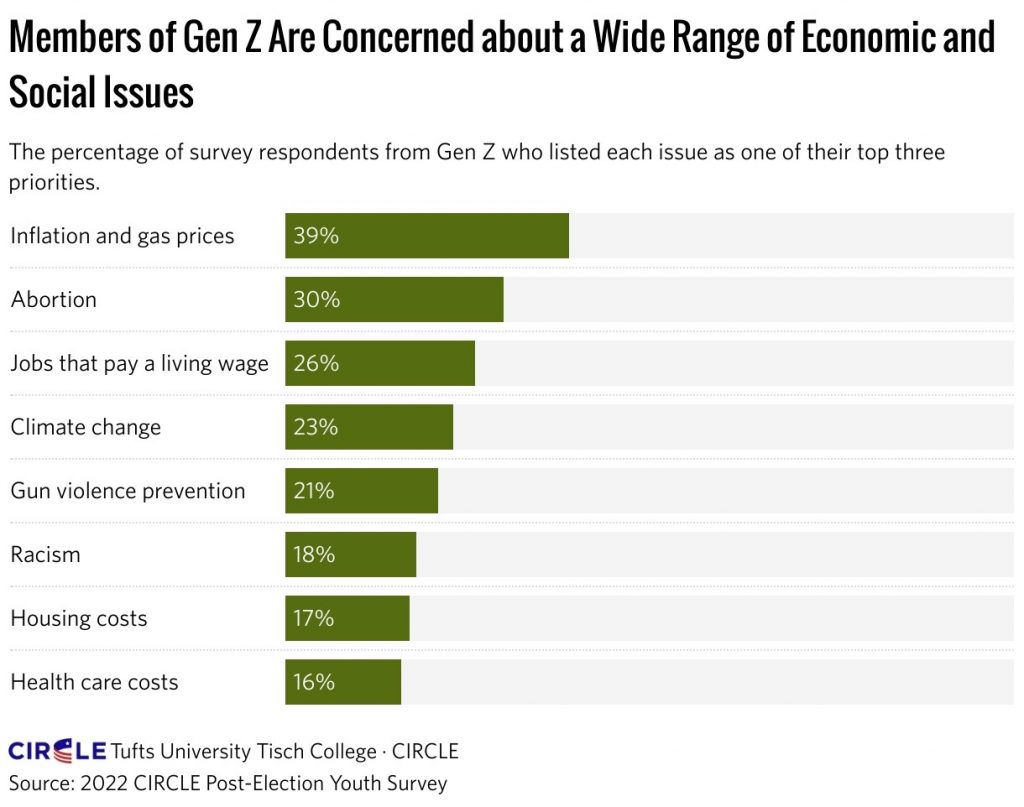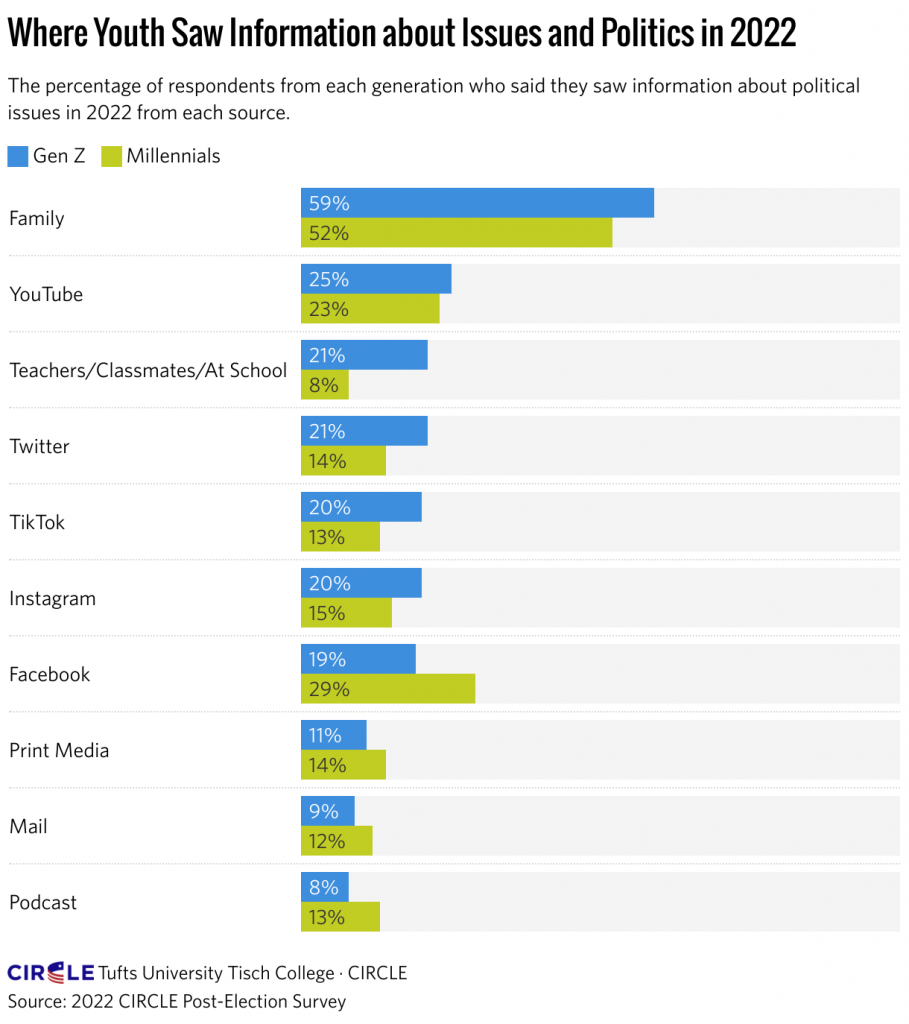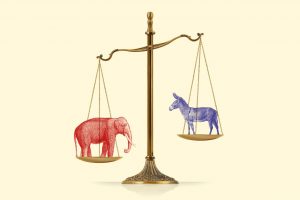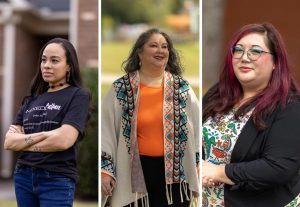This November 5, roughly 8 million new American voters will have the chance to fill out a ballot. And if the last election is any indication, many will – Gen-Z’s voter turnout in 2022 was higher than that of Gen Xers and Millennials when they were new voters. These active Gen-Z voters will be decisive in landing the keys to the Oval Office, and they want the candidates to treat them as such.
“Part of [campaigning] is making young voters feel like their vote matters from the day they turn 18” says Noah Rogoff, a public relations senior at Syracuse University. “This is an inherent issue with the election system… If you invest in young voters now, you’re going to build your voter base for the foreseeable future.”
Key Issues at Stake
Several issues are of greater concern to younger voters than the general electorate. In a survey conducted by Tufts’ Tisch College Center for Information & Research on Civic Learning and Engagement after the 2022 election, Gen-Z were asked to rank their top three priorities. 39% ranked inflation and gas prices as a top concern, 30% abortion, 26% jobs that pay a living wage and 23% climate change. Gen-Z voters were slightly more likely than Millennials to say that gun violence and racism were among their top three issues.

Many of these issues will remain a top priority for Gen-Z voters in 2024. With the US Supreme Court’s reversal of Roe v Wade in 2022, many feel that the fight for bodily autonomy has intensified. A national poll recently released by the Harvard Kennedy School has indicated that more young voters (aged 18-29) trust Harris on the issue of abortion (+31 points). This shouldn’t surprise Donald Trump’s running mate, J.D. Vance, who has publicly insisted that he would back a national abortion ban, despite later walking back that assertion at the recent VP debate.
Owen Robinson, a senior political science major at Syracuse, explained he was very concerned about abortion access: “For me, the Dobbs decision was one of the low points in American history. No matter where you are in the country, you should have the exact same rights over your body.”
Another issue for younger voters is the ongoing war between Israel and Palestine. The longtime US-Israel alliance may be under more scrutiny than ever before, and is already influencing opinions amongst Gen-Z voters. “We should be doing more to help the people of Palestine. I know [the US] supports the state of Israel, but there is more we can be doing on a humanitarian level,” said Robinson.
But not all young voters who are liberal feel Harris is the answer to American involvement in the Middle East, which may give former President Trump an edge in the upcoming election. “We’re seeing some younger, progressive liberals wanting the US to change its policy toward Israel, and they are disappointed that Harris is basically in the exact same place as Biden was,” said Margaret Talev, former White House correspondent for Bloomberg who had partnered with Syracuse University to create a student-interactive center for nonpartisan research based in Washington DC.
The impact of social media on youth media literacy, and the election
Gen-Z are also slightly more likely than the generations that precede them to get their news and information from Twitter, TikTok, and Instagram rather than Facebook, podcasts, and print media.

“People are using social media to replace their news consumption. It’s not a replacement,” said Talev. It’s evident that younger Americans are turning to social media for news, especially with search engine capabilities available on platforms like Instagram and TikTok. But Talev says that substituting credible newsrooms for unchecked sources is endangering the informed decision-making of young Americans.
“[Social media] can reach a lot of people and it’s free…but the danger in it is there’s much fewer guardrails, it’s kind of a wild west,” said Talev. She attributes much of news delivered on programs like TikTok and Instagram as “shallow and visually driven,” even in cases where accurate facts are presented. That may be a product of news being condensed to gear towards social media’s entertainment purposes. These so-called “snapshots” provide very little context when compared to vetted news stories that are fact-checked by experts.
Both candidates are trying to reach out to the youth vote through this social media, particularly on TikTok, with videos that meme-ify and explain their positions, but the final impact is difficult to map.
So will these youth voters decide the election? A poll done by Harvard Kennedy School’s Institute of Politics found that 64% of young voters say they will vote for Kamala Harris, while 32% for former President Donald Trump. But the votes cast will have the final word.









